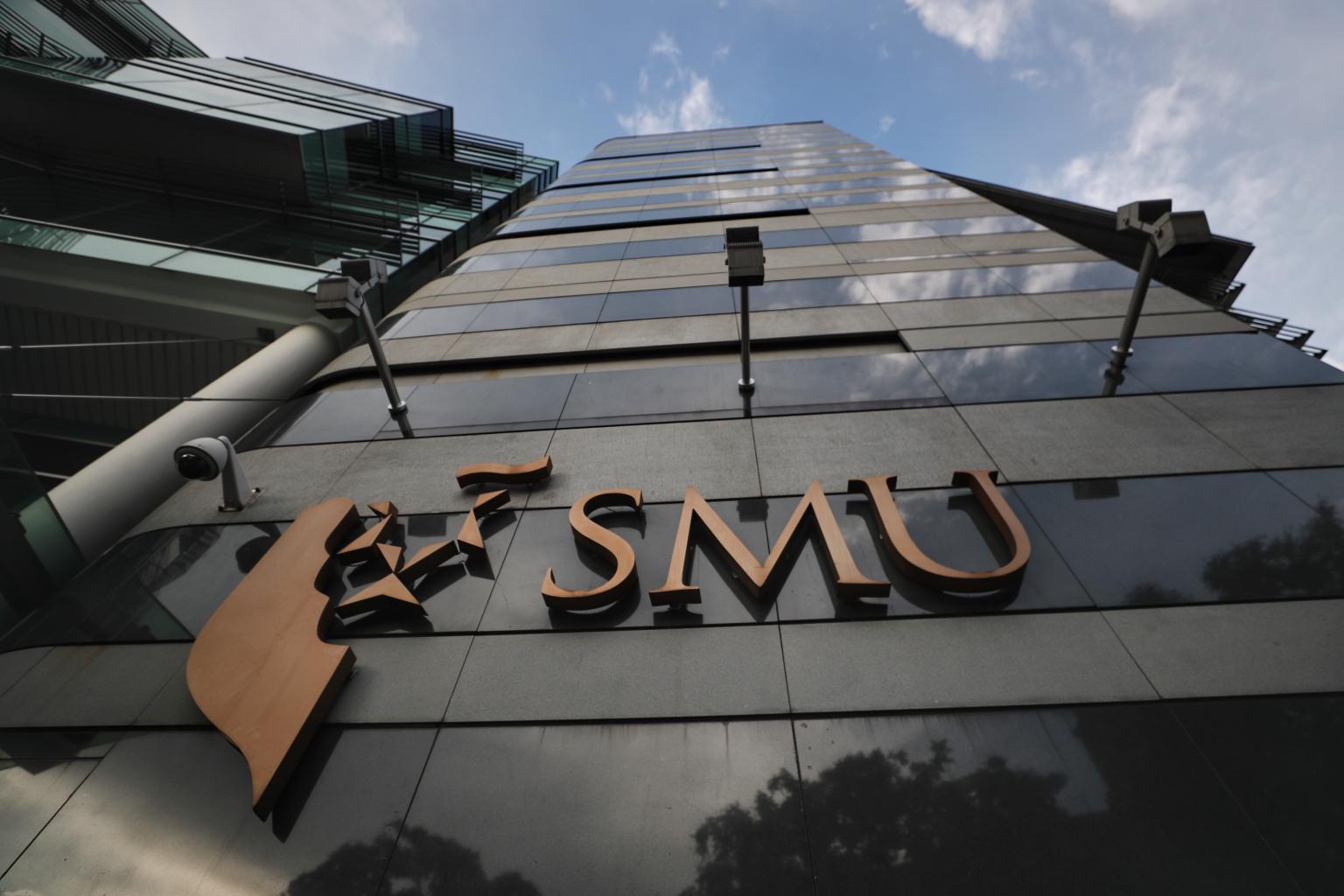SMU, A*Star launch lab that aims to tackle national issues using AI
Sign up now: Get ST's newsletters delivered to your inbox

The lab will also conduct research that integrates SMU's humanities and social sciences expertise and A*Star's Stem expertise.
ST PHOTO: KELVIN CHNG
SINGAPORE - The Singapore Management University (SMU) and the Agency for Science, Technology and Research (A*Star) on Tuesday (April 26) launched a new lab which will apply artificial intelligence (AI) technology to tackle high-priority national challenges facing Singapore such as the ageing population and polarisation.
The lab will develop tools and solutions tailored to the local context. One example is AI-powered systems that can monitor the well-being of senior citizens and alert caregivers in the event of anomalies.
Another example is a platform that can quickly generate sentiment and public opinion analysis to keep policymakers informed and help them better respond to complex events like pandemics.
Besides this, the lab will also conduct research that integrates SMU's humanities and social sciences expertise and A*Star's science, technology, engineering and mathematics (Stem) expertise.
Speaking at the launch held at SMU's Yong Pung How School of Law, SMU provost Timothy Clark said the new lab will focus on two main areas of research: computational social sciences and human-AI synergy.
Research in the first area will involve using AI and computational tools to study social issues such as adaptability, resilience and cohesion in the population.
Professor Clark said computational tools can generate insights over large volumes of data, such as digital content gathered online, but research in disciplines such as psychology and sociology is needed to understand the ways people generate and consume this content.
Understanding this will be vital to designing ways to promote societal resilience and cohesion, and to combat divisiveness and falsehoods, he added.
"Our faculty members participating in the joint lab are experts in social media analysis, network analysis, natural language processing, machine learning and AI, which are crucial to conducting this area of research," said Prof Clark.
"They also have extensive experience in computational social science research into diverse societal challenges, such as media bias, polarisation and fake news across many online platforms and regions."
The other research area - human-AI synergy - will focus on developing advanced AI that can better understand human intentions using situational context and nuanced cues in human behaviour such as body language, tone of voice and facial expression.
Computer science professor Archan Misra, who is vice-provost of research at SMU and a co-director of the new lab, said advanced AI assistants with such capabilities can be incorporated into concierge service kiosks in places such as hospitals, hotels or university campuses.
The AI assistants should be able to pick up non-verbal signals, such as recognising when a user is puzzled or has forgotten something important.
It should also correctly infer what the user wants it to do and, if necessary, ask clarifying follow-up questions if it lacks sufficient information to perform the task.
"The reason we think social science is very important is that it's not just about the AI's capability," said Professor Misra, adding that the AI's designers need to take into account individual preferences.
"It's also about the human being's acceptance of the progressively increasing role of the AI, with its own fallibilities."
The tools and insights developed by the lab are aimed not only at government agencies, but also companies and other organisations, said Dr Lim Keng Hui, executive director of A*Star's Institute of High Performance Computing, who is the lab's other co-director.
He said the public opinion and sentiment analysis tool, for instance, could also be of interest to companies looking to redefine policies like hybrid work arrangements.
"Everybody has got different preferences depending on, let's say, where you're from or the nature of your work," he said.
"Using the AI, we'll able to make sense of their concerns at a large scale, to inform policymakers in companies or non-profit organisations."


